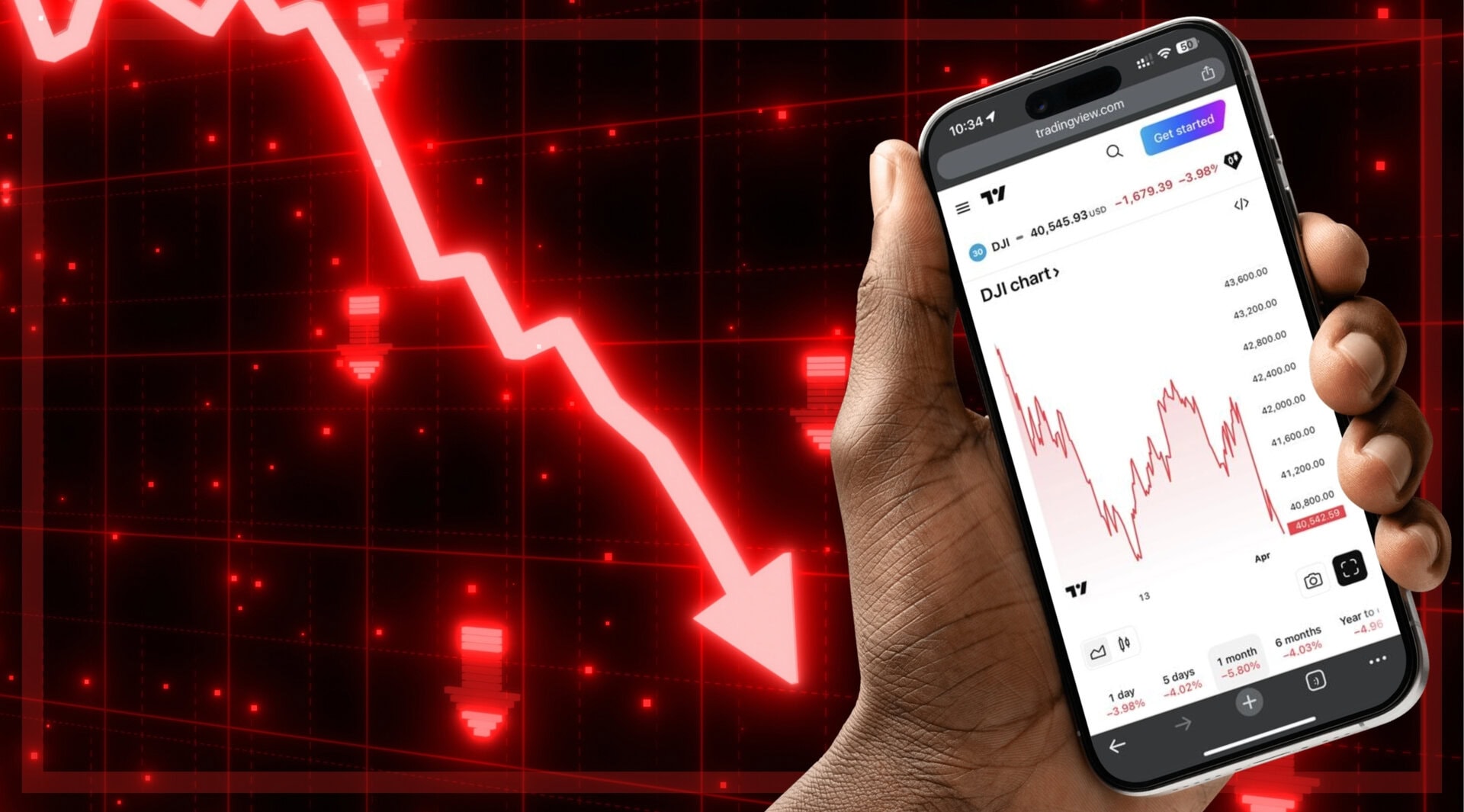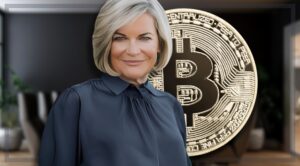In 2008 Niall Ferguson’s ‘The Ascent of Money’ was released. In it, the historian explained how the origins of hedging are agricultural. And, whilst most commentators think of minerals and commodities in the context of Africa. Some companies are focusing on AgriTech and the creation of an agricultural value chain that harks back to what hedging was created for.
“For a farmer nothing is more important than the future price of their crop after it’s been harvested and brought to market. But that could be higher, or much lower than the farmer expects. A futures contract allows the farmer to protect themselves by committing a merchant to buy the crop when it’s brought to market at a price agreed when the seeds are being planted,” Ferguson famously explained.
A stone’s throw away from West Dulwich, probably the home of several hedge fund managers today. Next to the ruins of the elaborate Crystal Palace, where the Festival of the Empire was held in 1911. Terry Igharoro, Founder and Leader of InventoryClub and I sat down to talk about the story behind his project to help scale AgriTech in Africa.
How Africa is ripe for AgriTech solutions
Local to the area Terry is a seasoned veteran when it comes to startups. From learning business information systems in his younger days, he now feels good in the role of a database architect. A database architect who shares a lot.
He was early to all things blockchain and DLT. In fact in 2018 Terry was a speaker at an all-party parliamentary committee where the discussion focused on blockchain. It was really at this time that Terry started to advocate on a larger forum the role that blockchain can have for emerging economies. And he told the committee this too. How the transparency of blockchain in an emerging economy can make a dramatic impact.
Terry pointed to how in Africa the mobile phone caught on well before landline phones were properly rolled out. In fact, the landline phone phenomenon was largely bypassed in Africa. He believes the same can apply to blockchain. Africa can create its modern business and financial systems on a brand new platform from the outset. Rather than copying other models that are out there in Western economies. Models that don’t necessarily work well.
In a 2019 report from McKinsey the consulting firm highlighted how “Africa could be two to three times more productive if it intensified its agricultural productivity.”
7 ways #entrepreneurs can benefit from the lucrative #opportunities in Africa's agriculture https://t.co/IK86pYwsbT
— Smallstarter Africa (@smallstarters) March 6, 2019
Currently valued at over $313 billion, the World Bank estimates that #Africa's #agribusiness opportunities could create a trillion-dollar food market by 2030. pic.twitter.com/AqajQMPVwB
It was reports like this that made Terry sit up and realize how much development was needed in Africa. And, being from a Nigerian upbringing, this made him want to help solve this problem.
The African Development Bank estimates the annual trade finance gap for Africa to be around $81 billion. And, Terry assured me, this number is growing. Whilst food imports into Africa continue to grow too. By the end of 2019 Africa’s food import bill had more than tripled reaching about $35 billion a year.
These numbers speak for themselves. As for the reason for the problem? Under-developed infrastructure, underutilization of farm labour, low output per hectare, there is no one single reason.
“We are not teaching the fisherman how to fish,” Terry explained. “Africa has 65% of the world’s arable land with over 60% of the population working in agriculture.”
The Path to InventoryClub
Initially Terry was involved in supporting entrepreneurs in Nigeria to gain footwear from investors using the InventoryClub platform. Being from the Urhobo tribe from the Delta South region of Nigeria, it was a natural choice for Terry to start there.
The business started to scale, but the direction changed when Terry met a logistics professional who he shared his project with. This was just before 2018.
Terry shared how the project he was creating was going well but how he was considering looking at the agricultural challenge that Africa faced too. As soon as he said this, the logistics professional sat up and told him directly: “anyone can do footwear and apparel, but agriculture is a massive leap forward and I would advise you to go straight into that.” And the rest, as they say, is history.
Before Terry pivoted completely into AgriTech there was a lot of infrastructure that was already in place at InventoryClub. The platform itself is built on the MultiChain blockchain, a product that has been around since 2015.
As a database architect Terry was enthused by the decentralized nature of blockchains. Additionally, he realized that he could essentially use stored procedures in smart contracts. He also realized that a lot of smart contracts are for financial transactions. He decided to build his own chain to store data on.
“We created a blockchain that enabled us to store proper data. Anything that was private was unavailable, but the data that isn’t private was available,” Terry explained. “If you want to give people transparency, it’s not about transaction IDs which in themselves don’t mean anything. People need to know what the transaction was. So that’s what we did.”
Terry and his team went further though. They added smart contracts. Terry highlighted how he may not be a developer himself, but he knows what he wants to do with the project from a data angle.
“My strength is that I know how to design a database,” Terry added. “I know how the data should flow.”
Why Africa needs Transformation
With the new focus on agriculture and AgriTech, Terry immersed himself into reports produced by the global consulting firms and various governments. The reports explained the gaps and the problems that go with them. So Terry started to look into how to address these problems. And whereas initially he was building a product that was going to support the whole of the Commonwealth, he then changed the focus to Africa only. Mainly because of the huge challenge that the continent faced. Something that needed his focus to address.
“Africa has always been an agricultural economy,” Terry explained. “We were once the best. We are no longer the best. And there are many different reasons for this.”
In order for Africa to become the bread-basket of the world, Terry believes that Africa needs to go through the transformations that everyone else in the world has been through.
“35% of the rest of the world’s arable land is outside of Africa. There is less space which means you need to be more productive. You need to use technology to find ways to increase returns. You don’t have the same climate, the same soil, all this needs addressing,” Terry shared. “Africa is abundant in everything. It needs to transform.”
Talk moved on to how there is already a lot of production in Africa. Investment is being made by big international companies. But Terry believes that most of this production is for export, and very little remains for the local economies.
“That is the reason we made sure InventoryClub was a ‘non-predatory model’,” Terry added. “We are going to develop agriculture for the people. We don’t want their land. We are doing this for the people.”
Decentralised Agricultural Co-operatives (DACs)
In the InventoryClub white paper there is mention of co-operatives. Investors who come on to the InventoryClub platform are able to select which one of these co-operatives they want to invest in. From Hemp to Women Agribusiness there are several different options to invest. Even pineapple farms.
💭🍍 Dream of owning a pineapple farm? It's closer than you think! Embrace tokenized farming and hold a piece of tropical paradise in your wallet. #FoodSecurity #Africa pic.twitter.com/bcPYDroUzL
— InventoryClub (@inventoryclub) August 23, 2023
Since developing the platform Terry has had to realize a few things. “I am playing with finance,” he explained. “I am playing with digital assets. There is a lot of regulation, and I need to know where the red tape is.”
“Agriculture has a different set of rules to other things. When we created the co-operatives we said that these are going to be decentralized agricultural co-operatives,” Terry explained. He also understands how this model may closely resemble what many of us think of as DAOs today. In fact, he embraces this idea.
Which brought us onto the topic of the informal markets in Africa. In South Africa these co-operatives form part of the informal market, and are familiarly known as stokvels.
Initially the plan had been to go to Uganda with InventoryClub. And during lockdown Terry spent a significant amount of time exploring the opportunities there. However, InventoryClub eventually found a partner in South Africa. One with three hundred hectares of land. The company is also registered in South Africa. And Terry spends a substantial amount of his time on the ground in South Africa.
“They are a farming community,” Terry shared. “But they don’t make enough to reinvest back into the farm. 30 – 50% of produce is lost post-harvest. Which is where InventoryClub can help.”
Aid may be reaching African countries. But Terry believes that top down distribution of funds rarely works. He believes that empowering and investing in grass roots is the solution. The answer is investing into stokvels.
From Stokvels to conceptualizing Hedging
Using the InventoryClub platform any investor can get involved in helping a decentralised agricultural co-operative or stokvel. A stokvel is like a credit union formed amongst farming communities. Members of the community pool their resources to create an informal market structure. The pooled money is used to perpetuate investment into agriculture.
“Africa is driven by informal markets,” Terry explained. “20% of that money is banked. 80% is saved to buy products wholesale once a year and distribute to the stokvel members.”
“We said we will take that same model, but we want to build wealth. Currently, the savings of the community are not increasing. The savings are just being used to buy something that will be consumed again in the future.”
“So we said, investors can put money into our stokvels and we put that money into agricultural projects,” Terry highlighted. “Anyone in the world can participate for a minimum of £5. This is in the form of a digital transfer for anybody outside of South Africa. Normal payment for those in South Africa though.”
Did you know that Africa's agribusiness is set to reach $1 trillion by 2030? There's money to be made. #Agribusiness #Web3 #FoodSecurity pic.twitter.com/ZY37kC6iLq
— InventoryClub (@inventoryclub) August 8, 2023
“This is the reason we created our own currency, the VNT token. Our token is focussed on financing African agriculture,” Terry explained. The token also enables anybody in the world to participate.
The VNT token is just a form of utility that helps invest into the decentralised agricultural co-operatives or stokvels. VNT only has any value if it is added to a stokvel that an investor chooses.
“You are using VNT to buy units in a stokvel,” Terry added. “Those stokvel units are non-transferable.” And, stokvel units are investment into agricultural activity that has a future value. A value that is shared between the stokvel and the investor. Sound familiar?
“We are connecting the digital with the physical,” Terry added. “And we are helping the informal agricultural markets in Africa access financial solutions.”
Interested in finding out more? Follow Terry and InventoryClub on X, formerly known as Twitter and see if AgriTech in Africa is what Hedging was really created for.
Author: Andy Samu
#Sharing #AgriculturalDAOs #StokvelDAOs #DecentralisedAgriculturalCooperatives #Stokvel #AgriTech #SouthAfrica #Africa #Agriculture #Data #DatabaseArchitect #Blockchain
Disclaimer:
The Editorial Team at #DisruptionBanking have taken all precautions to ensure that no persons or organizations have been adversely affected or offered any sort of financial advice in this Article. This Article is most definitely not Financial Advice.
See Also:
Why Black Tech Day Made History | Disruption Banking
Akoin: Sorry, Blame it on the 54+ currencies in Africa | Disruption Banking















